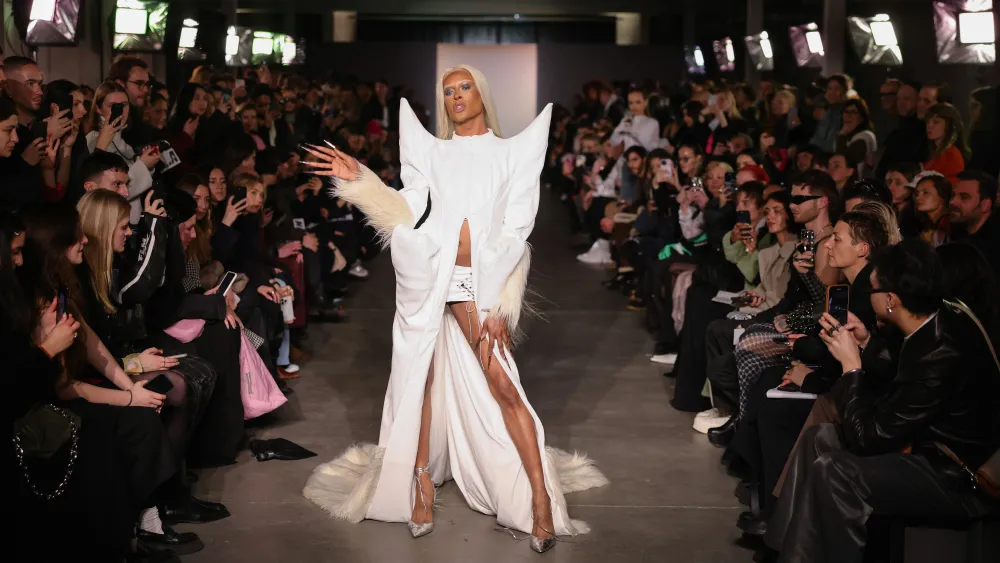As sustainability continues to take center stage in the fashion industry, leading events and organizations are paving the way towards a more eco-conscious future. One such trailblazer is Copenhagen Fashion Week, renowned for its strict sustainability standards that set the bar high for the entire industry. Now, imagine another major player following suit – Berlin Fashion Week (BFW) has recently announced its decision to align with Copenhagen’s sustainability requirements, sparking a wave of excitement and anticipation throughout the fashion world. Let’s delve into how this pivotal move by BFW is poised to reshape the landscape of sustainable fashion as we know it.
Overview of Copenhagen Fashion Week’s sustainability standards
Copenhagen Fashion Week has been at the forefront of setting sustainability standards in the fashion industry. Their guidelines encompass a range of criteria, from ethical sourcing of materials to reducing carbon emissions in production processes. Designers showcasing their collections during the event are required to meet these stringent requirements, ensuring that eco-conscious practices are woven into every garment presented on the runway.
The focus on sustainability by Copenhagen Fashion Week has sent ripples throughout the global fashion community, prompting other major events and organizations to take note and follow suit. By raising awareness about environmental issues within the industry, Copenhagen Fashion Week is driving positive change towards a more sustainable future for fashion.
With an increasing number of consumers demanding transparency and eco-friendly options in their clothing purchases, adherence to these sustainability standards is not only a moral imperative but also a strategic business move for brands looking to stay relevant in today’s market.
BFW’s decision to adopt these standards and its impact on the fashion industry
Berlin Fashion Week (BFW) has made a bold move by embracing Copenhagen Fashion Week’s sustainability standards. This decision marks a significant shift towards a more environmentally conscious and socially responsible fashion industry. By aligning with these stringent guidelines, BFW is setting a new standard for the global fashion community to follow.
The impact of BFW’s adoption of these sustainability standards will ripple across the industry, influencing designers, brands, and consumers alike. It sends a powerful message that sustainability is no longer just a trend but an essential pillar of modern fashion. This move challenges traditional practices and pushes stakeholders to reevaluate their supply chains, production methods, and overall impact on the planet.
With this proactive step towards sustainability, BFW paves the way for innovation and creativity within the industry. Designers are now encouraged to think outside the box and explore eco-friendly materials and processes without compromising style or quality. Brands have an opportunity to differentiate themselves in a crowded market by prioritizing sustainability.
Consumers are increasingly demanding transparency and ethical practices from fashion brands. BFW’s commitment to sustainability not only meets this demand but also educates consumers about making conscious choices when it comes to their wardrobe selections. As awareness around sustainable fashion grows, so does the influence of events like Berlin Fashion Week in shaping consumer behavior towards more responsible consumption habits.
How BFW plans to implement and enforce the sustainability standards
BFW is gearing up to implement Copenhagen Fashion Week’s sustainability standards with a clear strategy in mind. The plan involves educating designers and brands on sustainable practices, providing resources for sourcing eco-friendly materials, and setting strict guidelines for production processes.
To enforce these standards, BFW will conduct regular audits to ensure compliance with sustainability requirements. This includes monitoring the use of environmentally friendly dyes, reducing waste in manufacturing, and promoting fair labor practices throughout the supply chain.
Moreover, BFW aims to collaborate closely with stakeholders in the fashion industry to create a collective commitment towards sustainability. By fostering transparency and accountability within the sector, BFW hopes to set a new standard for responsible fashion practices that can inspire change on a global scale.
The potential challenges and benefits of this decision for BFW and the fashion industry as a whole
As BFW embraces Copenhagen Fashion Week’s sustainability standards, challenges and benefits await on the horizon. One of the key hurdles will be navigating the complex supply chains to ensure compliance across all aspects of production. This may require significant investments in technology and training for stakeholders.
On the flip side, adopting these standards can propel BFW into a leadership position within the fashion industry. By setting an example, they inspire other events and brands to follow suit, creating a ripple effect towards more sustainable practices industry-wide. This move could also attract eco-conscious consumers who prioritize ethical and environmentally-friendly products.
However, there might be resistance from traditionalists or those hesitant about changes that come with prioritizing sustainability over profit margins. Adapting to new processes and materials could initially increase costs for designers and brands, potentially impacting their bottom line.
Yet, in the long run, aligning with sustainability standards can lead to innovation, improved brand reputation, and increased market share as consumers increasingly demand transparency and accountability from fashion companies.
Reactions from designers, brands, and consumers towards BFW’s adoption of sustainability standards
Designers, brands, and consumers have been buzzing with excitement following BFW’s decision to embrace Copenhagen Fashion Week’s sustainability standards. Designers see this as a creative challenge, pushing them to innovate while respecting the environment. Brands are recognizing the shift towards sustainable practices as a strategic advantage that aligns with evolving consumer values.
Consumers, on the other hand, are applauding BFW for taking a stand in promoting eco-conscious fashion. Many are eager to support brands that prioritize sustainability and ethical production processes. There is a sense of optimism in the air as this move signals a positive change within the fashion industry.
Reactions have been overwhelmingly positive, highlighting a collective desire for more responsible practices across the board. The momentum is building towards a more sustainable future where style meets substance seamlessly.
Conclusion
In a fashion landscape increasingly shaped by environmental concerns, BFW’s decision to embrace Copenhagen Fashion Week’s sustainability standards marks a significant stride towards a more eco-conscious industry. By committing to these stringent requirements, BFW not only sets an example for other fashion weeks but also paves the way for a greener and more sustainable future in fashion.
As designers and brands align themselves with these principles, the entire industry stands to benefit from reduced environmental impact and improved ethical practices. While challenges may arise in the transition process, the long-term benefits of this shift towards sustainability are undeniable.
With positive reactions from designers, brands, and consumers alike, it is clear that there is growing support for BFW’s adoption of sustainability standards. This move not only reflects changing consumer preferences but also underscores the collective responsibility within the fashion community to prioritize ethical and environmentally-friendly practices.
As BFW leads by example in implementing and enforcing these standards, it signals a new era where sustainability is no longer just a trend but a fundamental pillar of the fashion industry. The journey towards greater sustainability may be ongoing, but with initiatives like this, we can look forward to a brighter and more sustainable future for fashion.
For more such content, please visit QAWire



